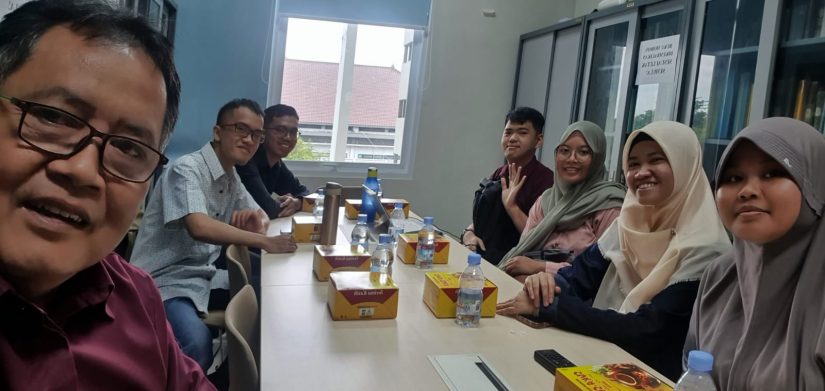
The Agricultural Microbiology Study Program held an Academic Progress Evaluation activity for students of the 2018 cohort on Thursday, January 9, 2025. Taking place at the Agricultural Microbiology Library Room, 4th Floor of the AGLC Building, this event served as an important forum for reflecting on the students’ academic journey and identifying solutions to the challenges faced during their studies.
The event was led directly by the Head of the Agricultural Microbiology Study Program, Ir. Ngadiman, M.Si., Ph.D., who actively engaged in dialogue with the invited students. The students invited to participate included: Merytania Desafira, Kukuh Wahyu Jatmiko, Isyhar Haafish A, Fajar Nugrahanto, Irsad Ardianto, Kartawijaya, Lia Angraini, Masfira, and Salsabiela Fauzia.
In an open and constructive discussion atmosphere, the students shared their experiences, challenges, and suggestions regarding the learning process, final project preparation, and academic administrative obstacles. The goal of this evaluation was to gather direct feedback from students so that the study program can provide more effective and responsive academic support in the future.
Head of Program Ir. Ngadiman emphasized the importance of such evaluation activities to strengthen communication between students and program administrators. He also motivated all participants to stay enthusiastic about completing their studies and to make full use of the academic resources and support available from both the program and the faculty.
“We hope this event can become a turning point for students in completing their studies more smoothly. The study program is always open to dialogue and ready to support students,” he stated in his closing remarks.
The event concluded with a Q&A session and the formulation of follow-up actions to be taken by both students and the study program. It is hoped that this activity will have a positive impact on accelerating the graduation of students from the 2018 cohort. This initiative reflects the Faculty of Agriculture’s awareness and commitment to achieving the global goal of SDG 4: Quality Education.
Writer: Roihana Ifa Kamalia
